Description
POLITRACES is a board game that give you the opportunity to feel like a participant in a real Political Races and prove to others that you deserve to get the Power and become the President!
STANDARD RULES OF THE POLITRACES GAME
business board game for 3-8 players, age 8+
The Goals of the Game
1. Become President - 1st place. It is necessary to pay a fee for participation in the Elections, go to the Small Circle and win the Elections by collecting the most Votes.
2. Become Prime Minister (or Secretary of State) - 2nd place. The President decides who will take this position.
3. Become Oligarch (1) - 3rd place. It is necessary to buy the Institution Oil Derrick. Oligarch has the right to give or exchange their Votes (but not to sell to the Treasury), however they can`t go to the Small Circle and become the President. If the President gives the Oligarch the 2nd place, then they share the 1st place.
-1) Possible if more than 4 players are playing (see the Institution Oil Derrick).
- The remaining players take their places according to the number of collected Votes.
- It is useful for players to choose the strategy, for example:
- collect resources and Votes to pay the Elections fee and try to become the President;
- collect resources to transfer them to your Candidate for Presidency and increase their chances of winning;
- collect resources to buy an Oil Derrick (if available) and become an Oligarch.
- Execution of agreements depends on the wishes of the players.
?oncept of the Game
All people who strive for power are conventionally divided into four categories that have different, but equal resources, forming the Political Quadrant©:
- Businesspersons (entrepreneurs) - have money or other resources which can be quickly sold;
- Activists (popular people) - know how to gather, motivate and encourage other people to act;
- Public Officials (civil servants) - have connections and authority;
- Experts (smart people) - have special knowledge and status.
To get the Power (win the Game) players need to collect all the specified resources and get voters Votes.
Gameplay
1. Game preparation
The players, who sit in a circle (1), lay the Playing Field (2) (game board) in the center.
The Chance and Debate cards are shuffled and laid out face down on the specially marked places.
Players choose who of them will be the Treasurer, i.e. responsible for the Treasury (3) (game bank), which is placed at the bottom of the Game Box, which contains cards, chips and others).
-
1) Participants play clockwise in the order they originally sit down to play (until the end of the Game).
2) The Playing Field consists of 4 sectors and 2 circles which divided into cells.
Sectors. The Game has 4 color sectors, which correspond to certain resources in the form of chips: Businessperson (green color, Money resource), Activist (purple color, People resource), Public Official (red color, Connections resource), Expert (blue color, Knowledge resource). Each sector consists of seven cells. In each of the sectors there is a START cell with which the Game begins. Having passed the sector cells, the player goes (down) to the Big Circle and plays there (the exception - Go to Another Sector cell). Players may get back to the sectors thanks to the Crisis cells or some of the Chance cards.
The Big Circle is Political Races. It consists of 24 cells. There are also 2 freestanding cells: Jail and Resort.
The Small Circle is Elections. Located in the center of the Playing Field and consists of 6 cells.
3) In the Treasury any 2 resources (same or different) may be exchanged for any other 1 resource or a Vote, but the Votes cannot be sold to the Treasury (except for special game situations). Exchange in the Treasury can be made only at the time of the player`s turn. The Treasury does not give loans, advances, does not accept Real Estate as collateral, etc. Stealing from the Treasury is prohibited.
2. Starting the Game, the first move, next moves
At this stage, players will move between sectors and the Big Circle. To determine who will make the first move each player will throw the Dice one time. The Player, who has the highest number (1) on the Dice, becomes the First Player, selects a pawn (game chip) and puts it on the START of any sector of their choice (2). The remaining players take turns, going around the board clockwise from the First Player by selecting their pawns and putting them on the following START (3) cells.
The Treasurer distributes to each player 5 chips of their basic resources and 2 chips of each remaining resource (4).
For each turn started in a Big or Small Circle, players will receive 1 of their basic resource (5) until the end of the Game from the Treasury (passive income), even when the Elections are announced (except for a situation when a player stays on the Jail cell).
The First Player rolls the playing Dice (with 6 faces) once and moves forward the number of cells indicated on the Dice clockwise.
Once on some cell, the player is obliged to perform the action that is indicated there (only once, when they gets on the cell).
When the Dice is pictured - this means that the player need to roll the Dice to determine what event will occur (the special conditions for the Institution Police).
When some resource or Vote chip is pictured - this means the corresponding resource or Vote chip.
Also, before the end of their move, players have the right to interact with other players and do operations (6).
When the player has completed all the actions, they announces the end of their move (themself).
All next players, clockwise, do the same actions as the First Player.
It is important to be attentive and keep an eye on other players. If someone did something forbidden during the Game (for example, made a move when it should be skipped) or forgot to do something (for example, to get their basic resource), but the player’s move is already over, then the Game continues without correcting the situation (except for situations such as moving someone else’s pawn).
Players are not allowed to combine their resources and/or Votes.
What is not prohibited is allowed in the Game. This means that players may freely interpret game situations (rules) and make non-standard decisions.
Players can speed up the Game by reducing the Election participation fee, announcing early Elections (counting Votes), limit the time of the players moves using the hourglass or making more Debates (see Debates in the Description of the Game Cells).
-
1) If several players have the same highest number (for example, 6:6), these players will roll the Dice again.
2) There are 4 START cells in the Game in four equivalent sectors, where you may start the Game. This determines the basic resources and right to immunity of the players: Businessperson (green color, Money resource, immunity from the Business Center and Hotel), Activist (purple color, People resource, immunity from the Union of Activists and Society for the Ecology Protection), Public Official (red color, Communications resource, immunity from the Police and Tax Inspection), Expert (blue color, Knowledge resource, immunity from the Institute of Expertise and Academy).
3) If there are more than 4 players, the placement of pawns continues in the second round. That is, the fifth player puts their pawn on the same START cell, on which the First Player pawn stands. And so on.
4) Resources (i.e. game currency). After placing the players pawns, each player receives from the Treasury 5 resources of the sector in which they started the Game (the basic resource), as well as 2 resources from the other sectors.
For example, a player on the START of the Businessperson sector (green color) will receive 5 chips of Money, 2 of People, 2 chips of Connections and 2 chips of Knowledge.
5) If during the Game some player gets into another sector, they still continues to receive their basic resource, which they initially received.
For example, the player started the Game in the Businessperson sector and its basic resource is Money, and then they got into the Public Official sector, but they still remains a Businessperson until the end of the Game and receives one Money as basic resource.
6) Operations. Players can perform any operations that do not violate the Rules of the Game (contacting other players, exchanging or selling their resources and Real Estate, using Chance cards, etc.), but only during their turn. If some player misses a move, they cannot perform operations (exception - the Resort cell).
Resources and Real Estate (except the Oil Derrick) can be freely disposed of (exchanged or sold), while Votes are not (exceptions - see the Oligarch description and the Political Party cell).
Presents. During their turn, players may make or accept gifts: resources, Real Estate, Chance cards.
Out of resources. If the player does not have resources (or Votes) for payment (to another player or to the Treasury) - they must purchase necessary ones (in the Treasury or from other players). If resources are still insufficient, the player must sell their Real Estate (if available). If the player does not have resources or Real Estate for payment, they may either pay 1 Vote to the Treasury (even if they has to pay another player), or go to the Jail for 1 move (except for the Candidate for Presidency).
3. The Small Circle, Election of the President, the end of the Game
To get to the Small Circle, it is necessary to pay a participation fee to the Treasury - 10 of each resources (1) and it is also necessary to have 10 Votes (which remain in the player’s hands).
The player can go to the Small Circle only at the beginning of their turn (before the Dice is thrown), but the player is allowed to conduct any operations before this (for example, sell Real Estate or exchange resources with other players).
The player who has moved to the Small Circle (the Oligarch cannot) puts the Game pawn on The Beginning of the Campaign cell and becomes Candidate for Presidency (has immunity and cannot get to Jail when there is nothing to pay).
After one Candidate for Presidency has collected 50 Votes, they announces the Election of the President (2), after which the players finish this Game round (counting from the First Player) and play the Final Round (3).
Elections. After the Final Round was payed, each player may take 1 Vote from the Treasury and give it to their Candidate for Presidency (you could Vote for yourself), after what the Votes are counted and the winner (just 1 person(4)) is announced as President (1st place).
The President decides who gets the 2nd place.
If there is the Oligarch in the Game, they takes the 3rd place (or if the President appoint the Oligarch 2nd place, then the Oligarch shares the 1st place with the President).
The remaining players are ranked according to the number of Votes in their hands.
-
1) That is, the fee for the participation in the Election of the President is 40 resources, namely 10 Money resources, 10 People resources, 10 Connections resources and 10 Knowledge resources.
2) Only Candidates for Presidency (that is, players who at the time of the announcement of the Election were in the Small Circle) may compete for the post of the President.
After the announcement of the Election of the President, none of the players may go to the Small Circle and become a Candidate for Presidency.
3) For example, if 4 people play and the 3rd (in a row from the First Player) player announces Election of the President, the 4th player goes after him/her, and the final round is played, that is, all players, starting with the First Player, make 1 more move (the last one).
4) If, after counting the Votes, it turns out that several Candidates for Presidency gained the same number of Votes, more than others, another Game round is held (until one winner is determined).
Description of the Game Cells
1. START. The Game begins with this cell. There are 4 START cells, which are located in the 4 different Game sectors. During the Game, players will get to START cells of different sectors. Every time some player gets to the START cell, they gets 2 resources of the sector in which this cell is located (indicated on the cell).
2. Award. The second cells of all sectors. Here players only get resources pictured on the cell, the number of which determined by the Dice.
3. Chance. If the player gets to the Chance cell, the player takes the top card from the Chance deck, which lies on the Playing Field (on the specially marked spot), reads what it is written on the card and follows the instructions.
The possibility to transfer the card to another player is indicated on the card.
If, after using the Chance card, the player moved to another cell, the relevant instructions are followed. However, if the player is returned to the cell where they stood (i.e., the last move was canceled), the cell instructions are not executed.
If the card cannot be used, then the player draws the next card.
4. Exhibition, Meeting, Round Table and Training. The fourth cells of all sectors where players should skip the next move and, at the same time, receive the resources pictured on the cell, the number of which determined by the Dice.
5. Forum Brings Resources. The fifth cell of all sectors, where players receive resources from other sectors. First, the player rolls the Dice to determine resource from which sector they will receive (counted from the next sector clockwise) and then they rolls the Dice again to find out the number of the resources they will receive.
For example, a player, being in the Activist sector, gets to the Forum Brings Resources cell. To find out which resource they will receive, the player rolls the Dice for the first time. Let’s say, the number 3 on the Dice, what means the 3rd sector clockwise from the Activist, that is, the Businessperson sector. This means that the player will receive Money resources, the number of which is determined by the second roll of the Dice.
6. Raiders Attack Your Business, Your Organization Splits, Attestation, and Exam. The sixth cells of all sectors.
The player should throw the Dice:
- if the number is 1, 2 or 3 on the Dice - the player goes to the START cell of the sector in which they is and, accordingly, receives two resources which are pictured on the cell;
- if the number is 4, 5 or 6 on the Dice - the player remains on the cell which they stands on.
7. Go to Another Sector. The seventh cells of all sectors. The player may throw the Dice to determine the sector in which they will go to the START cell and receive corresponding 2 resources (counted from the next sector clockwise). To stay in place, the player has to pay the Treasury 1 pictured resource.
For example, the player gets the Go to another sector cell of the Businessperson sector, where is offered a choice:
1) Pay 1 resource (which is pictured) to stay on this cell and move to the Big Circle from the next move;
2) Roll the Dice to go to the START of one of the sectors and receive 2 pictured resources.
Suppose that the player decides to roll the Dice and gets 2. This means that the player must go to START on the second sector clockwise, namely the Public Official sector.
8. Real Estate Market. There are 10 Real Estate Market cells in the Game, where players may buy and sell Real Estate.
There are 2 types of Real Estate - Institutions and Investments.
In Standard rules we only use Institutions.
The player, who purchased an Institution, gets profit from its use if some other player gets to them, also they gets 1 resource of the color of the Institution for each turn that the payer started as the owner of the Institution.
Real Estate may be profitably sold if the corresponding Chance card is drawn out.
Before the Game starts, all Real Estate is stored in the Treasury.
The Game has eight pairs of standard Institutions cards (Business Center, Hotel, Union of Activists, Society for the Ecology Protection, Institute of Expertise, Academy, Police, Tax Inspection) and additional ones - Oil Derrick.
Real Estate Cards symbolize the 4 gaming sectors, as evidenced by their value, content and color (except for Oil Derrick).
The Treasurer divides the Institutions cards into two identical decks, one of which is mixed and will be offered to the players if they get into the Real Estate Market cell, and the second is stored in the Treasury.
All Real Estate cards have a Market Price and a Crisis Price, shown on the cards. Players have the right to make any Real Estate deals between themselves (sell, buy, exchange, etc.).
When a player is on the Real Estate Market cell, they chooses one of the options (the player cannot change the decision):
- buy for the Market Price (build on this cell) 1 from 3 randomly drawn cards of Institution (If the player buys the Institution, then one card of the Institution is kept by the player, and the second card, stored in the second deck in the Treasury, is put on the Playing Field on the Real Estate Market cell on which the player stands, after what the cell becomes the cell of this Institution);
- to sell one of its Real Estate for the Market Price to the Treasury (if the player is in their Institution, they may sell it by Market Price as well).
- refuse the deal.
Any player may sell any of their Real Estate at any time at the Crisis Price during their move.
The player may sell/exchange their Real Estate on the general terms before purchasing a new Real Estate.
Any player has the right to purchase any Real Estate, if it is offered by the Treasurer (if the player can afford it).
The right to purchase the Real Estate cannot be transferred to another player, but later it is allowed to perform any operations with it (see the Gameplay item).
The cardholder has the right to fully or partially release a player who came to their Institution from any card effect (for example, when a player must pay to the Treasury, go to Jail or make a speech), under any conditions (to agree with each other).
Once in some Institutions, the player should make a speech (to speak), after which the remaining players (listeners) must vote if they like this speech (raise one hand up for like):
- if no one likes, the speaker receive nothing;
- if the minority like (less than half or half of the listeners), the speaker receives 1 of the resource pictured on the card, from the Treasury;
- if the majority like (more than half of the listeners), the speaker receives 2 of the resources pictured on the card, from the Treasury.
! Exceptions from the general rule
The Institution Police - may send the player who get this Institution for maximum 3 turns (how to read the Dice indicated on the Cover of the Rules and on the Bottom of the Game Box).
The Institution Oil Derrick - the most expensive Real Estate in the Game, which gives the player the status of Oligarch as well the 3rd place. If there are playing less than 5 players, then a pair of the cards Oil Derrick is excluded from the Game (there will be no Oligarch in the Game). The Oil Derrich may be sold just to the Treasury just for the Crisis Price.
9. Crisis. If the player get on the Crisis cell, they has to go to the START cell of the corresponding color (close to this Crisis cell) or pay 1 resource to the Treasury, which is pictured on the Crisis cell in order to stay in place.
10. Speech on the Channel. This cell gives the player the opportunity to choose: to get Votes for themselves or to get these Votes for another player. The number of Votes is determined by the Dice.
11. Debate. When a player gets to the Debate cell, they during 1 minute (use hourglass) draws cards (one by one, starting with the top) from the Debate deck (lies on the Playing Field), reads silently the term (word or phrase) and explains by any method this term to other players who have to guess it and say out loud.
It is forbidden for the player (who explain the term) to say the term or any part of that it, or even speak the root word (even if other player already told it). Also, it is forbidden to show a card or point to an object denoting a term. The term must be guessed exactly as indicated on the card.
Players will receive credit for guessing correctly when they say an exact translation of the term that is indicated on the card (for example, for the English word Tax other acceptable translations would be NALOG in Russian or PODATOK in Ukrainian).
If the player guessed the term, but used word-for-word translation into another language (if the translation is not on the card), and this translation is accepted by most players as correct, it is believed that the player guessed correctly.
If the term is guessed, the one who explained and the one who guessed will receive 1 Vote chip, and the used Debate card will be placed in a used discard pile.
If several players correctly named the word at the same time, then (after the Debate), those players will each throw the Dice and a person with a highest number takes the Vote.
After the term has been guessed, the player will draw another card and explain it as long as the hourglass still has time left.
A player may continue explaining the last card (which he/she took before the minute expires) after the hourglass ends, on the other hand the player may throw the card into discard pile without a penalty.
Fine. If the player violated the rules of explanation or could not explain the term and wants to go to the next card Debate - they must pay a fine of 1 Vote (other players don`t get Vote for this term). But it the time is up, then the player doesn’t pay the fine and just finish the Debate.
Because standard Debate cards has 6 words written and numbered in English, Russian, and Ukrainian, then the player throws the Dice before the Debate starts to determine under what number they will explain the terms.
For more Debates, players may increase the Debate time to 2 minutes and/or use 1 or 2 of the Real Estate Market cells as a Debate cell (to do this, put the card that symbolizes the Debate on the Real Estate Market cell).
12. Hospital. Being on this cell, the player rolls the Dice:
- if the number is from 1 to 3, the player is healthy (doesn`t pay);
- if the number is from 4 to 6, the player must pay 2 of any resources at his/her discretion to the Treasury.
13. Vacation and Resort. If the player gets to the Vacation cell, they places the pawn on the Resort cell near the center of the Playing Field. The number of moves that the player is to make to be on the Resort cell is determined by the Dice:
- if the number is from 1 to 3 - the player remains on the Resort cell 1 move;
- if the number is from 4 to 6 - the player remains on the Resort cell 2 moves.
The exit from the Resort cell is made through the Vacation cell (the Vacation cell will be the first cell the player moves to; if number 1 is on the Dice and the player gets to the Vacation cell, the effect of the Vacation cell does not happen this time).
If the player is on the Resort cell, they may get resources and perform Game operations, but not roll the Dice and move the pawn.
14. Jail. The player may get to the Jail cell for 1-3 moves through the Police cell (see description of the Real Estate Market cell) or when they has nothing to pay (see the Out of Resources in the Gameplay item). If the player gets to the Jail cell, they puts their pawn on the Jail cell near the center of the Playing Field.
The exit from the Jail cell is made through the Police cell, if some player has already built it (the cell Police will be the first cell of the player’s move: if number 1 is on the Dice and the player stops on the Police cell, the effect of the Police cell does not come this time).
If there is no Police cell, the player leaves the Jail through the closest clockwise Real Estate Market cell free of Institutions (if the number on the Dice is 1 and the player stopped on the Real Estate Market cell, the effect of the Real Estate Market cell does not come this time).
15. Casino. On this cell, the player is to make a bet (only with resources) and roll the Dice, which defines the result:
- if numbers 1 or 2 are on the Dice - the player loses their bet, which goes to the Treasury;
- if numbers 3 or 4 are on the Dice - the player takes back their bet;
- if numbers 5 or 6 is on the Dice - the player wins, and their bet doubles (the player takes the same resource as their bet from the Treasury).
Players cannot take bets from other players as well share bets.
16. Political Party. On this cell, a player may sell any number of Votes to the Treasury at the regular exchange rate (1 Vote = 2 of any resources at the player’s choice). This is the only Game situation when players may sell Votes to the Treasury.
17. The Beginning of the Campaign (as well the Debate cell). The player who gets to the Small Circle puts their pawn on this cell, which acts as a regular Debate cell (that is, after the switch to the Small Circle, the player immediately starts the Debate).
18. Forced Auction. A player (Candidate for Presidency) who gets to this cell may force (order) any other player to sell one of their Real Estate for the Crisis Price (except for the Oil Derrick) to the person they points to (to another player, to themselves or to the Treasury). A player cannot be forced to buy Real Estate. The operation (transaction) occurs immediately, during this move.
19. PR. On this cell, the player has the opportunity to get Votes for themself or remove (to the Treasury) another player’s Votes. The number of Votes is determined by the Dice.
20. Litigation. On this cell, the player decides what action to take: to get 1 Vote for themself or lose 2 of their Votes, so that the opponent is deprived of 3 Votes.
21. Protest Action. On this cell, the player has the opportunity to take away Votes from another (at their discretion) player. The number of Votes is determined by the Dice.
MAKE THE GAME HARDER
1) Read the Dice as is pictured on the Cover of the Rules and on the Botton of the Game Box (every time when the Dice is pictured), specifically:
- if the Dice indicates a 1 or a 2, it means 1 resource, 1 Vote or the player will move next (first) sector clockwise from the current position;
- if the Dice indicates a 3 or a 4, it means 2 resources, 2 Votes or they will have to move second sector clockwise from the current position;
- if the Dice indicates numbers 5 or 6, this means 3 resources or 3 Votes or they will need to move the third sector clockwise from the current position.
For example: a player is and is in the Go To Another Sector cell in the Businessperson sector and they rolls the Dice. Suppose the number 3 or 4 shows on the Dice. This mean, that the player needs to move their pawn to the START in the second sector clockwise from their current position, which is the Public Official sector.
2) Add-on: Real Estate Investments - cheap Real Estate in the Game, which may be purchased on the Real Estate Market cell at the same conditions as Institutions (the player has to choose which type of Real Estate they want to see for purchasing).
Investments give 1 resource of their color per turn and kept in the players hands (i.e. they are not placed on the Game Field).
If players use Investments, then the Institutions gives 2 resources per turn.
3) Add-on: extra decks for Debate (for example Tough Debate deck - there are hard with explanation).
If the player guesses the phrase, but changes the word order (for example, electoral system = system electoral), it is believed that the player guessed correctly.
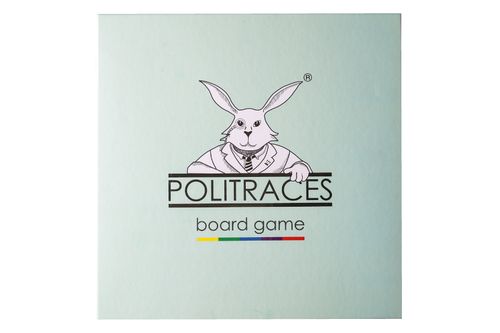

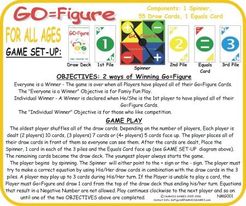
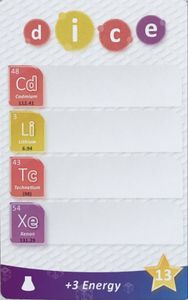

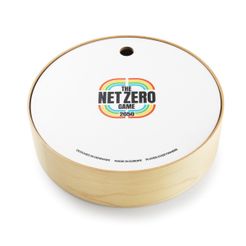
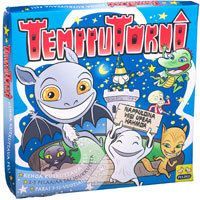

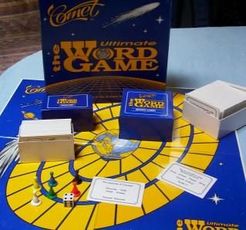
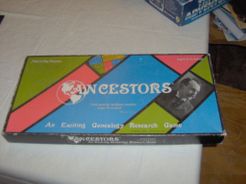
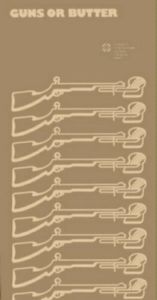
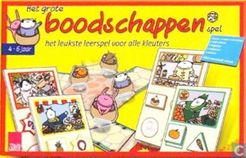
Comments (0)